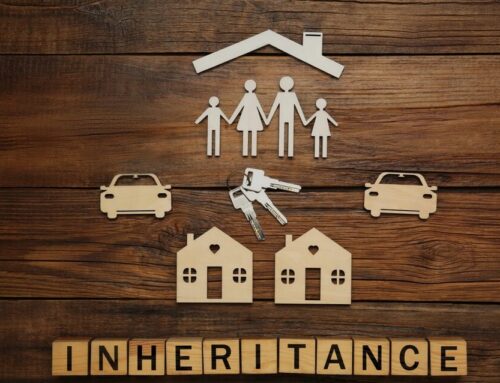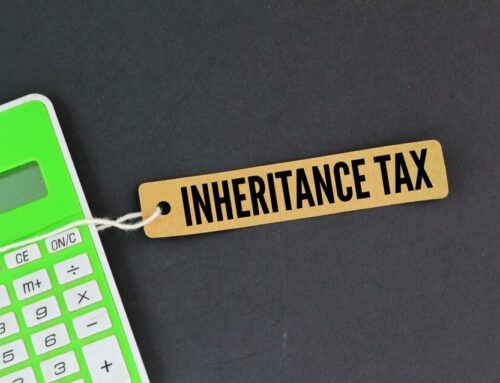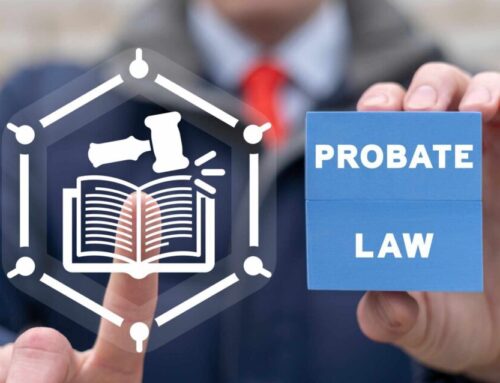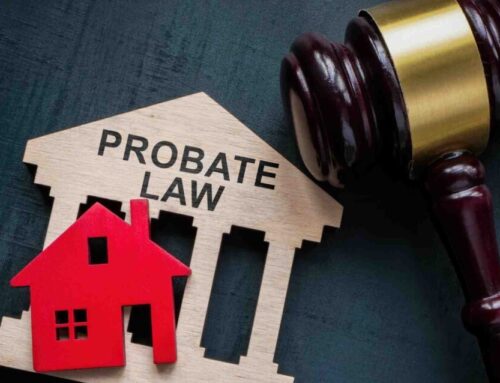Dealing with the death of a loved one is one of the most difficult things we have to go through in our lifetime. Along with the difficult formalities to deal with, such as the funeral, there’s also the distribution of someone’s estate (possessions, money, property etc). This is called probate, which can be a complicated process, even more so if someone has passed without leaving a Will.
If someone dies without making a Will, it is called dying in intestate. When this happens, someone’s estate will be divided according to the rules of intestacy. These rules can also be applied if the Will that has been written is deemed invalid. But what exactly are they?
What are the Rules Of Intestacy UK?
The rules of intestacy are a set of rules that are set out to determine how someone’s estate is shared if they haven’t left a Will. Unfortunately, this doesn’t take into consideration what the deceased would have wanted. In some cases, this means people can inherit an estate even if they weren’t in contact with the deceased. This is why it’s highly recommended to write a Will. That way your wishes are clear to your loved ones, and in the eyes of the law.
If a loved one has died, the first port of call is to find out if they’ve left a Will. If they have, how the estate will be distributed will be set out. If not, that’s when you need to familiarise yourself with the rules of intestacy. Either way, this can be a complicated and stressful process, so it’s important to get the right legal support. Having the right solicitor to help you can make all the difference.
The Rules of Intestacy Flowchart
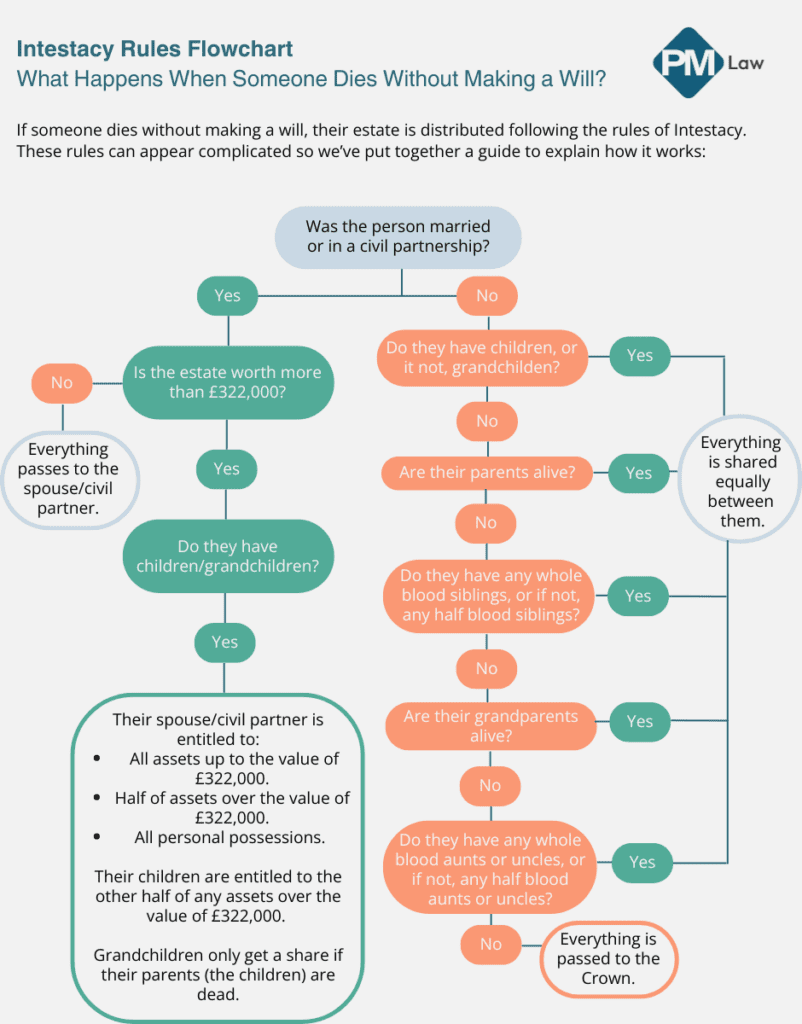
As you can see from the flowchart, the people who can inherit from the rules of intestacy are limited. In most cases, the biggest issue is that it doesn’t take into consideration relationships that are not legally binding, such as partners who are not married. It also doesn’t account for people who aren’t blood relatives, such as stepchildren. This can be problematic as blood relation or a marriage certificate, doesn’t always demonstrate the depth of a bond people have.
There can also be the issue of leaving someone without things they need, like their home. If you live with a partner, but you’re not married or in a civil partnership, and you pass away without leaving a Will, they are not necessarily legally entitled to anything. Although this can be challenged by the surviving partner, it would be much less stressful if there was a Will.
With that being said, if no Will has been left, the person’s property and assets must be distributed somehow. How they will be divided is outlined in The Administration of Estates Act 1925 and the Intestates’ estates Act 1952 and goes as follows:
- If there’s surviving spouse (married or civil partnership), and the estate is worth £322,000 or less, the spouse will receive 100% of the estate, along with all personal possessions.
- If the estate is more £322,000, the surviving spouse will receive the first £322,000, the personal possessions and 50% of everything left over. The remaining 50% will be divided equally between the children. If there are no children, the surviving spouse with receive the entirety of the estate.
If there is no surviving spouse or civil partner, the estate is distributed in the following order:
- If the deceased has children, the estate will be divided between them equally. If the children have already passed, it will then be passed on to their children (the grandchildren of the deceased).
- If there are no children, but the deceased parents are alive, the estate will be split between them.
- If there are none of the above, the estate will be equally divided between the deceased’s siblings. If there are no siblings, the inheritance will go to their children (the deceased’s nieces and nephews).
- If there are none of the above, the estate will be divided between any half-siblings. If the half-siblings have died, it will be passed to their children.
- If there are none of the above, the estate will be divided between any surviving grandparents.
- If there are none of the above, the estate will be divided between any aunties and uncles. If the aunties and uncles are no longer alive, it will be divided between their children (the deceased’s cousins).
- If there are none of the above, the estate will be divided between any half-aunties and half-uncles. If a half-auntie or half-uncle has already died it will be divided between their children (the deceased’s half cousins).
- If there are no blood relatives, or they have all passed away, then the estate will go to the crown.
Understanding what happens when we die if we don’t leave a will, shines a light on the importance of creating one. It might not be something you want to think about, or may not have even crossed your mind. However, it’s one of the only ways to ensure the people we love have the necessary provisions in place.
Getting Legal Support
For many people, the first time they hear words like the rules of intestacy, or probate for that matter, is during a time when a lot of their emotional energy is taken up by grief. It’s highly advised that you get the correct legal support as soon as possible. This way you know that side of things are taken care of, giving you the space to deal with everything else.
Our probate solicitors are here to help. Additionally, if you’re thinking of writing your Will, having the right solicitor can make all the difference. Get in touch today via our enquiry form, and we’ll see how we can help.


